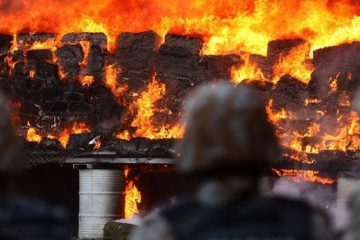
The War on Drugs’ Corroding Effect on Mexican Democracy
If it is part and parcel for democracies to (1) protect individual rights, (2) safeguard its citizenship from serious abuses of power, and (3) produce fair and reasonable laws which are impartially enforced, then we can assert that the misnamed “war on drugs” severely corrodes Mexican democracy. In general, the “war on drugs” is a punitive strategy which aims to increase drug prices and punish consumers, under the assumption that attacking supply can create a world without drugs. In Mexico, what is referred to as the “war on drugs” escalated in 2006, when then-president Felipe Calderón started “a frontal war against organized crime”, allegedly, to “keep drugs from reaching our children”. Calderón did so right after a highly competitive election …

Southeast Asia in Dark Times: Philippines’ Martial Law and Indonesia’s Mob Rule
The future of democracy and the rule of law in Southeast Asia is in peril. While fundamentally different in many ways, current political developments in the Philippines and Indonesia showcase an erosion of fundamental rights, respect of differences and due process. Confronted by terrorism, drugs and illiberal groups, how willing and able are the governments of the Philippines and Indonesia to balance national security prerogatives and popular demands with respect for civil liberties? A Spiral of Murder in the Philippines Under the leadership of President Rodrigo Duterte, the Filipino government embraced “martial law” to wage war on drugs, and now against militants aligned with the Islamic State. The government’s actions have reportedly led to widespread human rights violations and extra-judicial …









